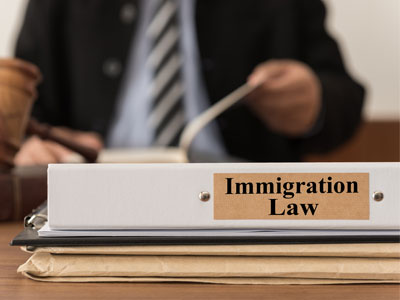Protecting Immigrant Victims of Domestic Violence
Are you an immigrant to the United States that is suffering from domestic violence? Do you feel trapped because of your immigrant status? There is help for you.
Under the Violence Against Women Act (VAWA), immigrant spouses, children, and parents of U.S. citizens and permanent residents can seek protection from their abusers without fear of deportation or adverse action. Victims of domestic violence can also be eligible for a U visa based on domestic violence laws.
If you are unsure which visa is right for you, consult with an experienced Domestic Violence Victims' Visa Lawyer, Magdalena Cuprys, who will attentively listen to your case and assess the best course of action. Serving Immigrants is a law firm based in Coral Gables, FL, Clewiston, FL & Orlando, FL, with a focus on immigration law.
What Is The VAWA Self-Petition?
The VAWA Self-Petition is a form of relief available to immigrant victims of domestic violence, allowing them to file for legal status without depending on an abusive spouse, child, or parent that has status in the United States. Any person who is a victim of domestic violence at the hands of either a spouse, child, or parent who has legal status in the United States is eligible to file a VAWA Self-Petition.
What Is A U Visa Based On Domestic Violence Laws?
A U visa is a visa for victims of qualifying criminal activity who report that criminal activity to the authorities, whether it’s the police or the state attorney’s office. Victims of domestic violence can be eligible for a U visa if they report the crime to the police and are willing and able to assist the police or prosecuting agency with the criminal activity. It's a visa that could be obtained for someone to obtain legal status in the United States.
Who Is Eligible For VAWA And U Visas?
To be eligible for VAWA, you must be a victim of domestic violence, and the abuser must be a lawful permanent resident in the United States or a U.S. citizen. To be eligible for a U visa, you must be a victim of a qualifying criminal activity, including domestic violence, and report that criminal activity to the authorities.
Can I Apply For VAWA Or A U Visa From Another Country?
Yes, you can apply for both VAWA and U visas from another country as long as you meet the eligibility requirements.
What Happens If My VAWA Or U Visa Application Is Denied?
If your VAWA or U visa application is denied, you can appeal or resubmit the application with additional information. If you don’t appeal or resubmit, it’s possible that you will be placed in deportation proceedings. However, an experienced Domestic Violence Victims' Visa Lawyer can help you understand your options and represent you in the appeals process.
Reach Out Today
Immigrant victims of domestic violence should not feel trapped or helpless. The Violence Against Women Act and U visa based on domestic violence laws offer relief for victims of domestic violence, protecting them from their abusers.
Más información:
If you or someone you know is a victim of domestic violence, contact Serving Immigrants, and speak with our experienced Domestic Violence Victims' Visa Lawyer, Magdalena Cuprys at (305) 907-6151. We have law offices in Coral Gables, FL, Clewiston, FL & Orlando.

La abogada Magdalena Cuprys es una experimentada abogada de inmigración con sede en Orlando y Coral Gables, Florida. Con tres idiomas en su haber y años de experiencia legal trabajando con inmigrantes de todo tipo, ella aporta una considerable experiencia y conocimiento en el campo y trabaja duro para explicar los conceptos de inmigración, capacitar a los futuros ciudadanos, y mantener a los inmigrantes actuales y futuros al día sobre la ley de inmigración de EE.UU..
Conéctese con su bufete, Serving Immigrants, para mantenerse al día sobre los últimos avances en la ley de inmigración de los Estados Unidos y obtener valiosos conocimientos necesarios para navegar por el desafiante panorama legal de la inmigración en Florida.
Llámenos ahora para que revisemos su caso ( 305) 924-1133
